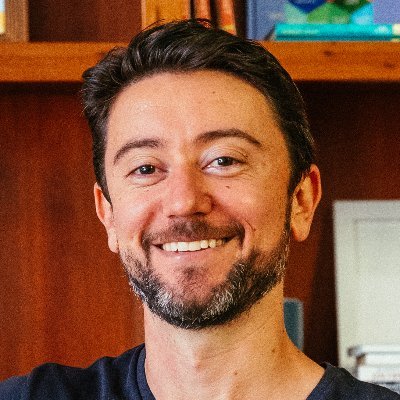La forma en que operaba Binance es una locura:
- Reuniones diarias de liderazgo a las 11 p.m., por lo que nada se bloqueó durante más de 24 horas
- KPIs mensuales de billones de dólares
- Era normal tener 50+ reportes directos, por lo que los colaboradores individuales nunca estaban a más de 1-2 niveles de distancia del CEO
- Una obsesión con la tasa de conversión de los segmentos más pequeños de usuarios
- Mayur (CPO) literalmente movió su escritorio al equipo que tuviera la mayor ventaja (o desventaja) de 10 veces en ese momento.
- El negocio pasó de cero a $400 mil millones en 5 años 😮
Mayur Kamat (@5degreez) is CPO at @n26, ex-Head of Product at @Binance, and built and scaled products at @Google (Gmail Mobile, Hangouts), @Microsoft, and travel unicorn @Agoda.
Mayur shares endless wild stories and a lot of unconventional product insights I've never heard before. There's something in this conversation for everyone.
Some of my biggest takeaways:
1. Binance’s leadership met every single day (often at 11 p.m.) so no decision waited more than 24 hours. Tight feedback loops beat elaborate planning.
2. Founder CZ kept about 55 direct reports so individual contributors were never more than one level away from the CEO. This forced leaders to live in the details and empowered ICs to “own the whole cell.”
3. Mayur literally moved his desk to whichever team had the biggest 10x upside—or downside—at that moment. Apply the same lens: growth and compliance issues usually move the needle fastest in fintech.
4. Treat “strategy” as a hypothesis pipeline: ship small, measure fast, double down on what the data proves. Tools like Statsig, Gemini summaries, and cohort dashboards make this possible at scale.
5. Work at companies that compound learning. High-growth environments (Google in the early mobile era, Agoda’s A/B culture, Binance’s hyperscale, N26’s pan-EU banking) give you daily reps and a powerful alumni network—worth far more than early salary bumps.
6. Optimize for your superpowers, not your gaps. Identify what energizes you—via StrengthsFinder-style assessments or honest reflection—and choose roles where those strengths decide success. Early in your career, ignore compensation differentials that don’t accelerate this fit.
7. Fast, reversible decisions beat “perfect” ones. In most product calls there’s no right vs. wrong—only slow vs. fast. Move quickly, learn, and pivot; reserve heavyweight processes for bets that could kill the company or the user.
8. Fintech creates exceptional PMs. Banking/financial products involve existential tradeoffs daily, requiring exceptional stakeholder management and decision-making skills.
Listen now 👇
• YouTube:
• Spotify:
• Apple:
Thank you to our wonderful sponsors for supporting the podcast:
🏆 @WorkOS — Modern identity platform for B2B SaaS, free up to 1 million MAUs:
🏆 @useparagon — Ship every SaaS integration your customers want:
🏆 @TrustVanta — Automate compliance. Simplify security:
194,66 mil
348
El contenido de esta página lo proporcionan terceros. A menos que se indique lo contrario, OKX no es el autor de los artículos citados y no reclama ningún derecho de autor sobre los materiales. El contenido se proporciona únicamente con fines informativos y no representa las opiniones de OKX. No pretende ser un respaldo de ningún tipo y no debe ser considerado como un consejo de inversión o una solicitud para comprar o vender activos digitales. En la medida en que la IA generativa se utiliza para proporcionar resúmenes u otra información, dicho contenido generado por IA puede ser inexacto o incoherente. Lee el artículo vinculado para obtener más detalles e información. OKX no es responsable del contenido alojado en sitios de terceros. El holding de activos digitales, incluyendo stablecoins y NFT, implican un alto grado de riesgo y pueden fluctuar en gran medida. Debes considerar cuidadosamente si el trading o holding de activos digitales es adecuado para ti a la luz de tu situación financiera.

